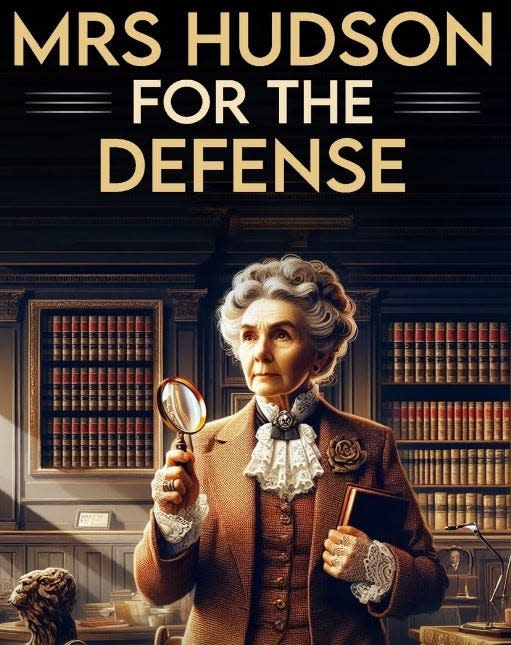Carolina Beach psychologist offers different view of Sherlock Holmes

Arthur Conan Doyle died in 1930, but his creation Sherlock Holmes lives on.
Dozens of writers have taken up the mantle of chronicling Victorian England's foremost consulting detective, from Laurie R. King ("The Beekeeper's Apprentice") to Nicholas Meyer ("The Seven Percent Solution") to Anthony Horowitz ("House of Silk") to Kareem Abdul-Jabbar ("Mycroft and Holmes").
Now comes Barry S. Brown, a semi-retired psychologist from Carolina Beach, who, in seven novels, has argued the original thesis that it was Holmes' housekeeper, Mrs. Hudson, who was the real brains of the operation.
Doyle mentioned Mrs. Hudson perhaps a dozen times in passing; in all the stories (as feminists have noted ruefully), she never utters a line. We never even know her first name.
No, in Brown's version, Mrs. Hudson is the widow of Tobias, a veteran London constable. She learned basic criminology from him as they read the crime stories in the London papers together, and she learned to observe. Now, a lady in Victorian England would never be accepted as a detective, so she essentially hired Holmes and Watson as front men and solved the cases back at 221-B Baker St. while the scones were baking.
"Mrs. Hudson for the Defense" is the eighth novel in the series, with no signs of flagging. Fans of costumed mystery will be entertained.
Our story takes us several years after the golden age of the 1880s. Holmes has retired to a cottage in the Sussex Downs to pursue beekeeping. His sometime foil, Inspector Lestrade, has retired as well.
Then, one day, a former member of the Baker Street Irregulars -- Holmes' informal band of street urchins who ran errands and kept watch -- shows up at the cottage door with shocking news: Dr. Watson is wanted for murder, suspected of poisoning his brother-in-law.
Almost as bad: Mrs. Hudson has been arrested at a women's suffrage march.
Mrs. Hudson's incarceration is quickly cleared up. Watson's dilemma is more of what Holmes used to call "a four-pipe problem."
Reginald Mills, the brother-in-law, dropped dead at a dinner party at Watson's house. Now Reginald was a gambler, a cad, a philanderer and, when possible, a blackmailer. Lots of people had reason to murder him. But where are the clues?
Holmes rushes back to London and as they used to say, the game is afoot. This time, however, with Watson in hiding, Mrs. Hudson has to join Holmes as leg man, interviewing the witnesses and reviewing the crime scene.
In a side plot, Mrs. Hudson and Inspector Lestrade have to clear a number of women's suffrage activists -- including the very real Christabel Pankhurst, who've been framed for smashing windows.
Writing in pseudo-Victorian diction, Brown has grown steadily better at his work as Mrs. Hudson's adventures have proceeded. The latest volume will not disappoint his fans.
Book review
Mrs. Hudson for the Defense
By Barry S. Brown
MX Publishing, $14.95
This article originally appeared on Wilmington StarNews: In "Mrs. Hudson for the Defense," Sherlock Holmes' housekeeper praised
